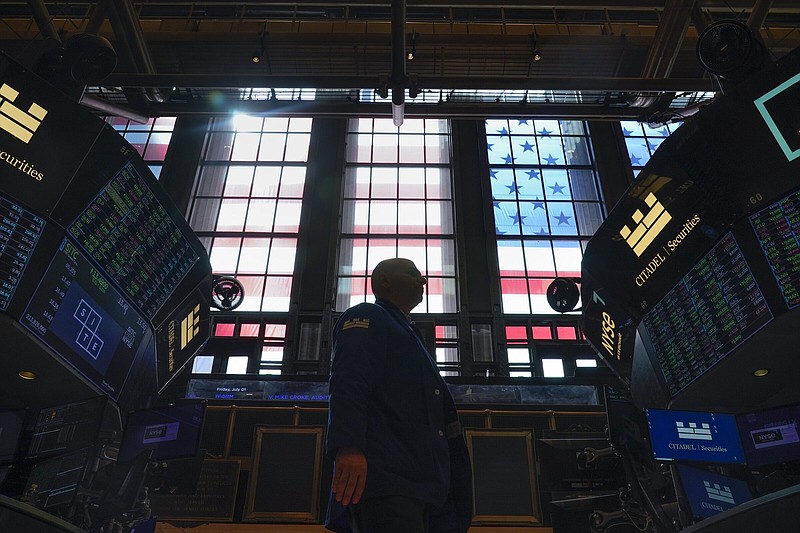Wall Street capped another choppy day of trading Wednesday with modest gains for the major stock indexes, after investors combed the minutes from the Federal Reserve's most recent interest rate policy meeting for clues about what the central bank may do next to fight inflation.
The S&P 500 rose 0.4%, its third consecutive gain, after spending much of the morning and early afternoon wavering between gains and losses. The Dow Jones Industrial Average rose 0.2%, while the the Nasdaq rose 0.4%.
Small company stocks remained in a slump, however, a sign that investors are worried about economic growth. The Russell 2000 gave up 0.8%.
Bond yields rose significantly. The yield on the 10-year Treasury, which helps set mortgage rates, jumped to 2.93% from 2.81% late Tuesday.
The minutes from the Fed's two-day meeting last month show that the central bank's policymakers concluded higher interest rates could be needed to restrain what they saw as a worrying trend: consumers starting to anticipate higher inflation. The policymakers also acknowledged that more rate increases could weaken the economy.
The S&P 500 rose 13.69 points to 3,845.08. The Dow gained 69.86 points to 31,037.68. The Nasdaq rose 39.61 points to 11,361.85. The Russell 2000 fell 13.78 points to 1,727.55.
Major indexes have swung from sharp losses to gains on a day-to-day and even hour-to-hour basis lately, reflecting investors' worries about inflation, rising interest rates and a potential recession. The broader market, though, is still mired in a deep slump that has dragged the S&P 500 into a bear market, over 20% below its most recent high.
Wall Street's key concern centers around the Federal Reserve's effort to rein in inflation, and the risk its plan could send the economy into a recession.
Inflation has squeezed businesses and consumers throughout the year. Its grip tightened after Russia invaded Ukraine in February and as China locked down several key cities to contain rising covid-19 cases, which worsened supply chain problems.
Surging oil prices worsened inflation by sending gasoline prices in the U.S. to record highs. The price of U.S. crude oil is still up 36% for the year, but has been slipping throughout the week in a welcome sign for a market hoping for any signal that inflation could be easing.
U.S. crude oil fell 1% Wednesday. The price on Tuesday settled below $100 a barrel for the first time since early May.
Central banks have been raising interest rates in an attempt to temper inflation. The Fed has been particularly aggressive in its shift from historically low interest rates at the height of the pandemic to unusually big rate increases now. That has raised concerns that the central bank could go too far, hitting the brakes too hard on economic growth and bringing on a recession.
After last month's meeting, the Fed raised its rate by three-quarters of a point to a range of 1.5% to 1.75% -- the biggest single increase in nearly three decades -- and signaled that further large increases would likely be needed.
Investors are closely monitoring economic data for clues about inflation's effect, its trajectory, and what that means for the Fed's position moving forward. A government report on job openings in May beat economists' expectations in a sign that the employment market remains healthy. A report on the U.S. services industry showed that the sector's growth slowed less than expected in June.
Wall Street will be closely watching the U.S. government's release of employment data for June on Friday.
Technology and health care stocks accounted for a big share of the benchmark S&P 500 index's gains Wednesday. Cisco Systems rose 1.7% and Pfizer added 2.1%.
Energy sector stocks, which lost ground along with crude oil prices, were among the few sectors that closed lower.
